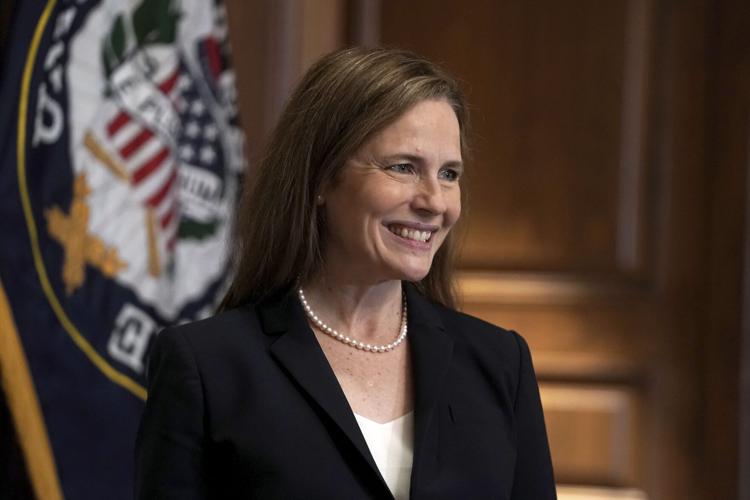In a decision written by Louisiana native Amy Coney Barrett overruling lower-court judges from the state, on a case whose main plaintiff was a local anti-vaccine activist and that personally affected Attorney General Liz Murrill — whose office was another plaintiff — the U.S. Supreme Court has now made it much easier for government officials to stifle free speech.
It was a terrible decision.
As accurately described in a dissenting opinion by Justice Samuel Alito, Murthy v. Missouri involved “a coterie of officials at the highest levels of the Federal Government [who] continuously harried and implicitly threatened Facebook with potentially crippling consequences if it did not comply with their wishes about the suppression of certain COVID-19-related speech.”
Facebook in turn cracked down on a plethora of posts against mandates for vaccines and masks, including restricting plaintiff Jill Hines’ account on numerous occasions, especially for posting an article — an accurate article, at that — about worrisome rates of myocarditis, a potentially deadly heart ailment, in teenagers who received the coronavirus vaccine.
By now, the Centers for Disease Control has acknowledged that, although still relatively rare, evidence now “supports a causal association” between some of the COVID-19 vaccines and myocarditis, especially in late-teen or young adult males. At the time, though, at least in part due to the government pressure, Facebook actively censored those reports, including the one posted by Hines.
As it happens, Murrill’s son, then aged 17, was one of those who developed myocarditis, in his case just 36 hours after his second dose of a vaccine. As Murrill said in gripping testimony before Congress, her son “would need to spend four days in the pediatric ICU, hooked up to pulse-oxygen and heart monitors while receiving a 15-hour IVIg infusion to ‘stop his body from attacking itself.’”
Thank goodness her son recovered. But the suppression of information about the myocarditis risk almost certainly caused harm to Murrill’s son and to others so situated. That’s why Hines, a Louisiana-based anti-vaccine activist, was trying to post her article on Facebook. Hines herself clearly suffered a loss of her ability to communicate the truth because of the censorship by Facebook, which was motivated by threats from government officials.
The major question in the lawsuit by Hines, the state of Louisiana and others was whether the government’s indirect censorship (by pressuring the platform to restrict the speech) was a violation of First Amendment free-speech rights, as it surely would have been if the censorship had been direct.
The justices, though, never squarely reached that question. Instead, the 6-3 court, led by Barrett, ruled that Hines and the varied other plaintiffs — including health officials from Louisiana and Missouri who were “hampered in their ability” to warn state residents — lacked legal “standing” to sue in the first place. Why? Because they couldn’t show that the censorship was continuing. To have standing to sue, one must suffer harm, but Barrett wrote it was “no more than conjecture” that the harm to speech rights would continue.
As shown by Alito, joined by Justices Clarence Thomas and Neil Gorsuch, that logic is bizarrely twisted. Under Barrett’s theory, government can censor anyone at any time and then, when caught, just say “oops, I won’t do it again,” and, abracadabra, the censored party would never have “standing” to sue.
As Alito wrote, though, “the record clearly shows that Hines was still being censored when she sued — and that the censorship continued thereafter.” And: “The effects of the changes the officials coerced persisted. Those changes controlled censorship decisions before and after Hines sued.” What Hines wanted was injunctive relief to keep government from massively coercing social-media platforms into censoring her or anyone else in the future. Alito, Thomas, and Gorsuch rightly would have recognized that the coercive threat, if not prohibited, provides plenty of reason for Hines to fear unconstitutional censorship going forward.
And if Hines and the others do have standing, Alito wrote, it is undeniable that “for months, high-ranking Government officials placed unrelenting pressure on Facebook to suppress Americans’ free speech. [Yet] the Court unjustifiably refuses to address this serious threat to the First Amendment.”
Even those of us who generally support vaccines, including the ones against COVID-19, should be terribly worried by this second-hand but obvious censorship by government.
Barrett and her five colleagues in the majority just harmed everybody’s free-speech rights by their procedural dodge — a dodge that, to quote Philippians 4:7, “surpasseth understanding.”


